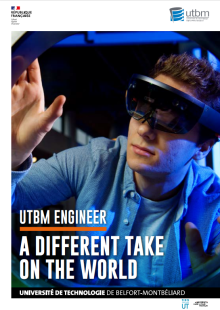International relations
Partnerships and Staff
UTBM is committed to developing strong and sustainable relations with its more than 250 partner universities all around the world. Sharing knowledge and promoting higher education within an international perspective is one of UTBM’s priorities.
Therefore, UTBM takes part in various European and non-European exchange and research programs to facilitate student and faculty mobility, to give international students and teaching staff the opportunity to visit our university, and to contribute to the development of higher education.
Our partner universities over the world
- Africa & Middle East: 69 universities
- Asia & Oceania: 42 universities
- Europe: 101 universities
- North America: 18 universities
- South America: 22 universities
The University of Technology of Belfort-Montbéliard (UTBM) adopts a holistic and sustainable view of technology, focusing on ethical, responsible, and inclusive approaches to technological development. This is formalized in the Technology Manifesto, which aligns with the values of democracy, inclusion, sustainability, and environmental responsibility. The three strategic pillars of the University’s International Relations and Internationalization Department (DRII) stem from this Technology Manifesto:
- Promoting internationalization by supporting mobility and enhancing the value of international students and faculty.
- Optimizing processes through certifications and digital transformation, while strengthening academic partnerships.
- Encouraging pedagogical innovation and innovation through pedagogy via interdisciplinary and multicultural partnerships to address global challenges such as the energy transition, sustainable mobility, and digitalization.
A team at your service
UTBM International Relations Office is here to help you! Feel free to contact us shall you have a query, question or concern.

